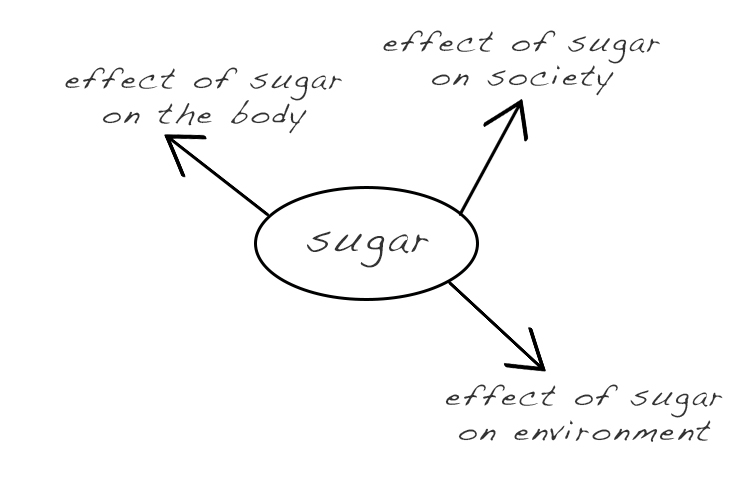When I was in high school, I had the “five paragraph essay” formula drilled into my head. Every essay I wrote had an introduction and conclusion, and in between those two paragraphs were three major points to prove my thesis. I had that formula down pat — and then I got to college. My first major college assignment was a seven-page paper. I had no idea what to do. There was no question to answer, and five paragraphs were not going to cut it for a college research paper.
It was time for a new formula. And this time, I had to figure it out myself.
So I did. With each new semester I tweaked my system until it became even more natural and even fun to me than those boring five-paragraph essays. I’m proud to say that it’s been almost three years since I got anything below an A on a research paper. And each of those papers began with a really good research paper topic.
So how do you choose a research paper topic? Here’s how I do it.
Step 1: Do some background reading
When I was at Oxford, I had to write an essay every week. So each week, after my tutorial, I went to the library and pulled out a giant encyclopedia and read a few articles around my topic. If I had to write about a topic like “Biblical Narrative,” I’d read the article on that and a few other articles mentioned within in.
You don’t need to go to the library to do this; with the internet, it’s even easier. Think about the topics you’ve covered in your class this semester and see which one interests you most. Then go to your college library’s website and use their catalogue search function to see which books, journal articles, and encyclopedia pages are relevant to that topic.
Step 2: Clarify your general topic
Skim the articles you found and see if anything jumps out at you. Specifically, look for problems and challenges:
- What questions or problems jump out at you?
- Is something not adding up?
- Is something confusing or interesting to you?
Follow your nose on this one. If there’s a point in your reading that doesn’t make sense or that you wish they’d elaborated on, that’s a great place to start. Now take the problem or general topic that you drew from that reading and hone it down a little. For example, if your class is on health and society, and the readings that stuck out to you had to do with sugar, choose that as your general topic.
Step 3: Brainstorm or brain map concepts related to your general topic
There are dozens of aspects of a particular issue that you could write about. Using the example from the previous step, you could write about average sugar consumption in the U.S. compared to in other countries; comparing sugar content in food in the US to that in other countries; the environmental impact of the sugar consumption in the United States; the effect of sugar on the body, or more.

Choose the sub-topic that seems most interesting to you. Next, you can choose an angle to take on the sub-topic you selected. Let’s say that for your health and society class, you want to focus on sugar and society. You could look at the correlation between sugar intake and widespread obesity, or look at sugar lobbyists and their effect on healthcare initiatives. No matter your sub-topic, here are some angles you can consider:
- Social
- Political
- Environmental
- Geographic
Step 4: Formulate your research paper topic into a question
Next, take your newly specific sub-topic and, if you like, the angle, and focus it into a question. For example:
- Instead of different rates of sugar intake in the U.S versus Denmark, try what effect does average national sugar intake have on obesity rates in the U.S. and Denmark?
- In place of education in the life of Jane Austen, try how did Jane Austen’s family’s education impact the role of education in her books?
- Instead of American art in the 1970s, try in what ways did the American political landscape of the 1970s affect a particular artist’s work?
Step 5: Check your research paper topic with your professor
This final step is optional, but can be very helpful, especially for newer students. If you’re unsure about either your topic or about resources you can use to research your topic, take it to your professor and run it by them. Ask for feedback and any recommendations they may have for books or scholars to consider when doing your research. If they like the topic, great! If not, go back to a previous step and start over, either reexamining your topic from a different angle or finding a new topic altogether.
This system may seem heavy-duty, but after a few rounds, it will become second-nature to you. A well-formulated essay topic is the foundation for a great paper, and by using this system, you’ll find a solid research paper topic and be well on your way to a great paper.



You had to write an essay every week? I struggled having to write one essay per course, lol! I used to visit my profs during their office hours to show them my essay outlines, which was actually super helpful!
I’ve never gotten to select the topic for a research paper, so my process is a less flexible then the one you outlined. That being said, I think the process you’ve outlined would be very helpful for those you have more freedom of topic.
Kristine
http://mylittleboxoftricks.com
My favorite essays in college were always the ones where I could pick a topic I was passionate about. Great tips!
xoxo A
http://www.southernbelleintraining.com
I’ve had to do so many research papers in under grad and grad school – I now feel like a pro haha.
omg reading this I have severe ptsd from my uni days haha research papers were the WORST! love your tips though, background research before settling on a topic is super important x
Great tips! The came at the perfect time. Trying to figure out a topic as we speak!
Greta | http://www.gretahollar.com
Agreeing very hard on all of these while I am in the middle of formulating my own honors thesis!
http://thesofieyahdiaries.com/beauty/winter-skincare-must-haves
Step #3 is really important and often overlooked. I wish I had gotten more in this habit back when I wrote research papers.
These are awesome tips! thank god I never have to write one again though haha!
Oh man, I’m not in college anymore but this post totally brings me back to long nights in the library! Wonderful tips!
That’s one thing about college I wish they would be more specific about! Paper writing in high school is so much different than in college, and this breaks it down so well!
These are awesome tips and will totally help me when finals roll around. Thank you for sharing!
I love how you write and make these points seem so simple yet so important!
Such great tips for college kids! I’ll have to send this to my sister.